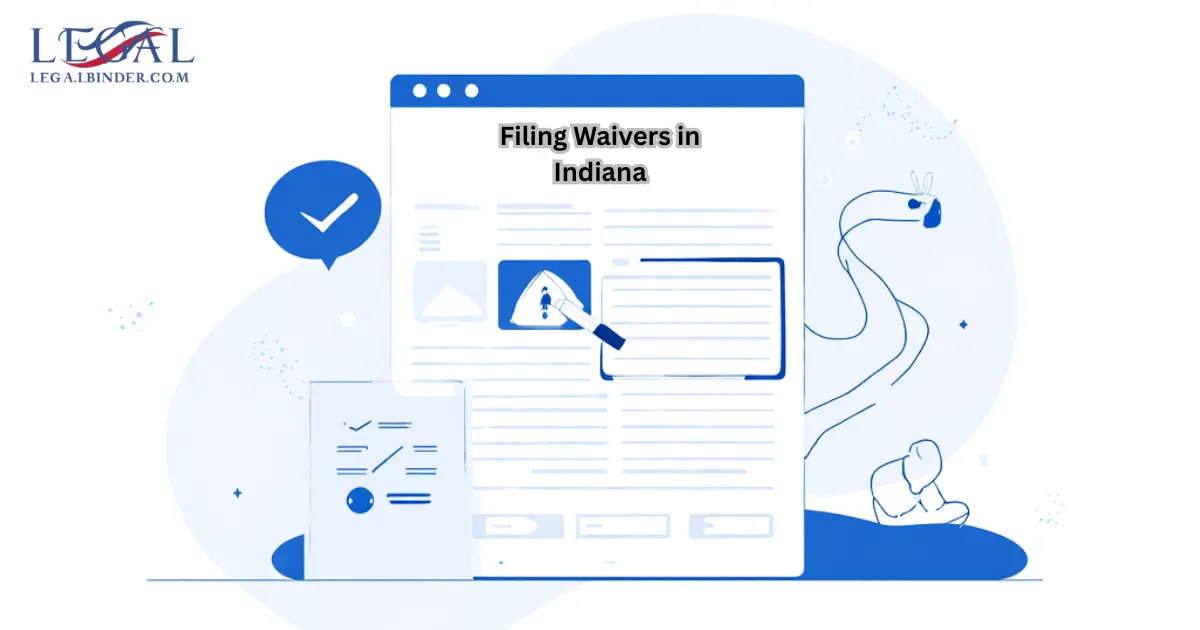Physical Address
304 North Cardinal St.
Dorchester Center, MA 02124
Physical Address
304 North Cardinal St.
Dorchester Center, MA 02124

Filing Waivers in Indiana — If you need to request fee relief or proceed without prepaying court costs in Indiana, this guide explains Indiana-specific eligibility, required documents, and the complete filing workflow. Use this resource to prepare a strong waiver packet for submission to Indiana county clerks or the appropriate state court.
Indiana law and local court rules govern how waiver requests are evaluated. This article focuses exclusively on Indiana procedures and official state resources so you file correctly the first time.
In Indiana, a waiver typically asks the court to excuse filing fees, transcript fees, sheriff/service costs, or appeal fees because the filer cannot reasonably pay. Waivers may be called indigency petitions, in forma pauperis motions, or fee-waiver applications depending on the court or agency.
Common relief requested through waivers in Indiana includes:
Indiana courts consider state statutes, local rules, and administrative practices when deciding waiver petitions. Judges review household income, assets, and unavoidable expenses rather than a single income threshold.
Primary Indiana resources to consult:
Residency and filing location: submit the waiver in the Indiana county where the case is pending. For administrative waivers (licensing or agency fees), file with the relevant state agency following its procedures.
Follow these clear steps to prepare and file your Indiana waiver packet.
Prepare these documents for a typical Indiana waiver filing:
Filing the waiver form is free in Indiana. Processing time and outcomes vary by county and judge.
Download authoritative Indiana forms and confirm procedures at these official resources:
A: Use the county indigency affidavit or an in forma pauperis form available on the Indiana Judicial Branch or county clerk website. Confirm any local variations with the clerk.
A: No. An Indiana judge will review your affidavit and supporting documents and may deny the request if you can reasonably pay the fees.
A: Yes. File the appropriate in forma pauperis or indigency motion before the appellate deadline to seek relief for appeals.
A: If denied, you must pay the required fees to proceed. You can provide additional evidence, seek legal aid, or consult an attorney for next steps.
A: County clerk self-help desks, Indiana legal aid organizations, and law school clinics (e.g., Indiana University Maurer) can offer guidance and document review for eligible filers.
Careful preparation of your filing waivers Indiana packet—using the correct form, attaching clear supporting documents, and filing in the proper county—improves the likelihood of a favorable decision. Begin by downloading the current indigency or in forma pauperis form from the Indiana Judicial Branch, gather proof of benefits or income, and file promptly with the county clerk.
For official forms and county contacts, visit the Indiana Judicial Branch or the Indiana.gov portal. For templates and related guides, visit USAlegalBinder.com or consult a qualified Indiana attorney for personalized advice.